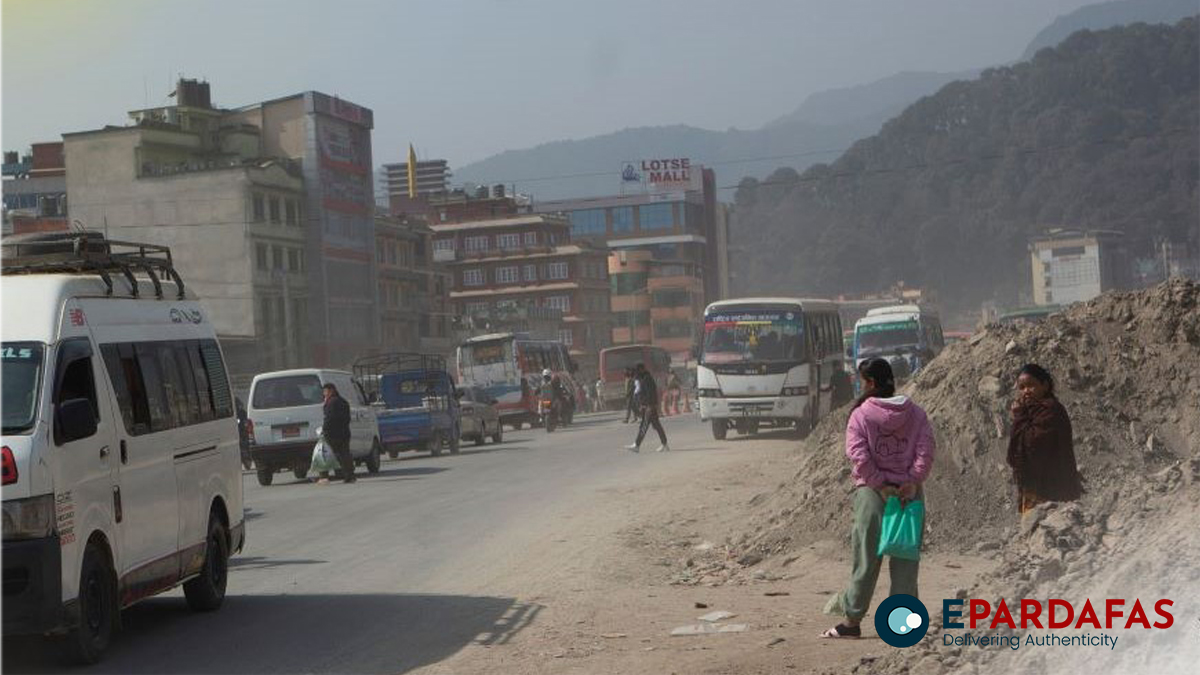
China’s Delay Aggravates Nepal’s Infrastructure Woes

Frustration is mounting in Nepal as the much-anticipated expansion of the Kalanki-Bashundhara section of the ring road remains stalled, five years after an agreement with the Chinese government. The 8.2 km stretch, planned for expansion to eight lanes, has seen no tangible progress, leaving local residents to endure severe dust and travel difficulties.
Despite an agreement signed in 2019 between the Nepali government and China, the project is still in its initial stages. The Department of Roads (DoR) confirms that the expansion work has effectively come to a standstill. On Saturday afternoon, Kathmandu Metropolitan City Mayor Balendra Shah (Balen) highlighted the suffering of residents by dumping truckloads of dust and garbage in front of the offices of the Road Division and the Department of Roads, symbolizing the acute distress caused by the prolonged delay.
In response, the Department of Roads issued a statement on Sunday, clarifying that the delay is not their fault. Ram Hari Pokharel, spokesperson for the Department, stated, “We are awaiting an agreement between the Ministry of Finance and the Chinese government. We are doing our part.”
A senior Department official estimated that expanding the road segment to eight lanes would cost around Rs 4 billion. “Although the Department is capable of undertaking the project, we are waiting for the decision of the Chinese government,” he noted.
The Chinese government had initially insisted that the Nepali government clear the site before proceeding. Despite the site being cleared and some monasteries being relocated, the work has not progressed. Currently, the Department of Roads is independently constructing service lanes on both sides of the Kalanki-Bashundhara section. However, there is no clear timeline for the main expansion work to resume, as even a Detailed Project Report (DPR) has not been prepared.
Pokharel mentioned that an exchange letter would soon be signed between Nepal and China to advance the road expansion. Additionally, an agreement has been reached to address deficiencies observed in the Kalanki-Koteshwor road expansion, with plans to leave some land vacant in the middle of the road.
On Friday, Kathmandu Mayor Balen Shah and Narayan Datta Bhandari, head of the Road Division, Kathmandu, discussed the road expansion. The following day, Bhandari expressed his discontent when Mayor Shah suddenly disposed of garbage in front of the Department’s office, blaming them for the delay in the Kalanki-Bashundhara road project.
The ongoing delay not only disrupts daily life but also casts a shadow over the bilateral cooperation between Nepal and China. The inaction on the part of the Chinese government raises concerns about their commitment to infrastructure projects in Nepal, putting the future of such international agreements in jeopardy. The lack of progress on the Kalanki-Bashundhara road expansion serves as a glaring example of the adverse impacts of China’s delays on Nepal’s development and the well-being of its citizens.












Comments